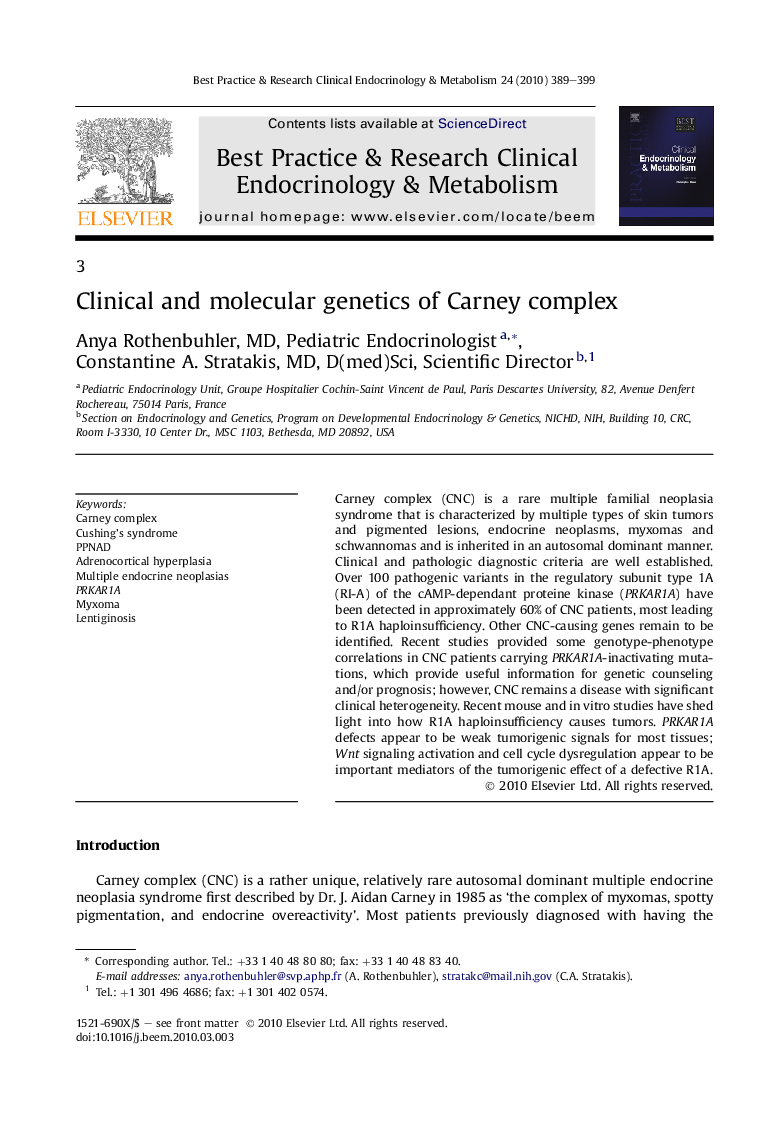| Article ID | Journal | Published Year | Pages | File Type |
|---|---|---|---|---|
| 2791883 | Best Practice & Research Clinical Endocrinology & Metabolism | 2010 | 11 Pages |
Carney complex (CNC) is a rare multiple familial neoplasia syndrome that is characterized by multiple types of skin tumors and pigmented lesions, endocrine neoplasms, myxomas and schwannomas and is inherited in an autosomal dominant manner. Clinical and pathologic diagnostic criteria are well established. Over 100 pathogenic variants in the regulatory subunit type 1A (RI-A) of the cAMP-dependant proteine kinase (PRKAR1A) have been detected in approximately 60% of CNC patients, most leading to R1A haploinsufficiency. Other CNC-causing genes remain to be identified. Recent studies provided some genotype-phenotype correlations in CNC patients carrying PRKAR1A-inactivating mutations, which provide useful information for genetic counseling and/or prognosis; however, CNC remains a disease with significant clinical heterogeneity. Recent mouse and in vitro studies have shed light into how R1A haploinsufficiency causes tumors. PRKAR1A defects appear to be weak tumorigenic signals for most tissues; Wnt signaling activation and cell cycle dysregulation appear to be important mediators of the tumorigenic effect of a defective R1A.
